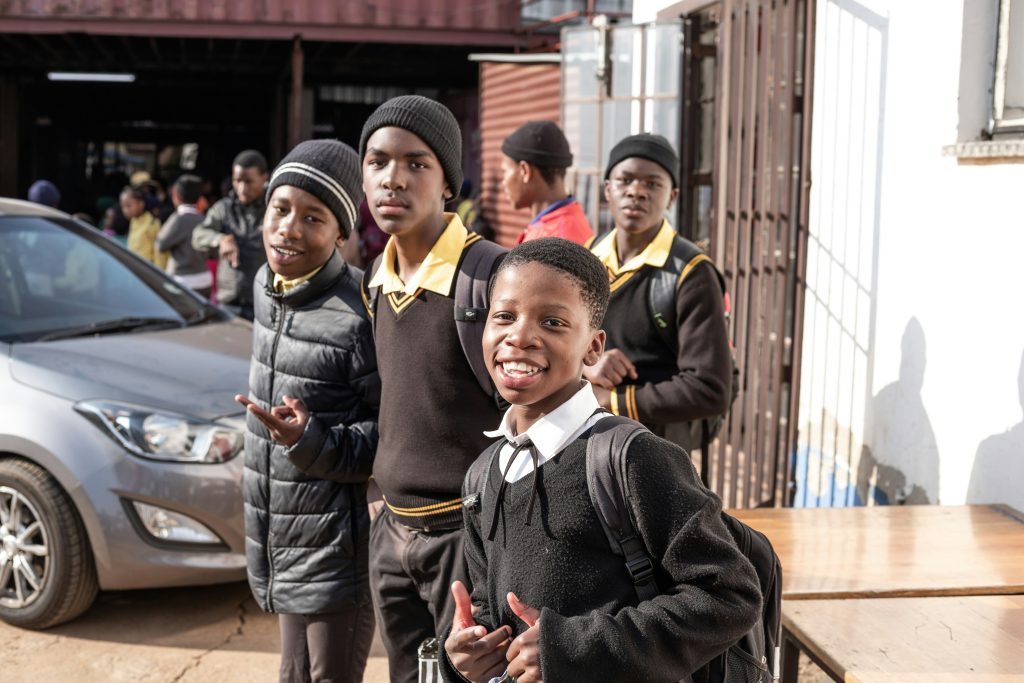By JoAnne Wadsworth, Communications Consultant, G20 Interfaith Forum
This blog post is based on academic research by Prof. Maniraj Sukdaven examining the intersection of religious pluralism, constitutional rights, and education policy in post-apartheid South Africa. Prof. Sukdaven presented the abstract of this research at the ICLRS Symposium held at Brigham Young University on Oct. 5-7, 2025.
– – –
Since South Africa’s transition to democracy in 1994, the nation has faced a complex challenge: how do you honor religious diversity while ensuring constitutional rights in the education system?
The 1996 Constitution laid the groundwork for this balancing act. Section 15 guarantees freedom of religion, while Section 29 ensures the right to education. But the real innovation came through the South African Schools Act and the governance powers it granted to school bodies. These provisions created a framework that celebrates diversity while maintaining crucial protections through constitutional guarantees, judicial oversight, and curriculum standards.
Three Domains of Tension
The relationship between religion and education in South Africa’s democratic framework operates across three distinct yet interconnected domains.
The Constitutional and Legislative Framework
The constitutional and legislative framework serves as a structural safeguard, designed to prevent any single faith tradition from dominating the education system. At the same time, it affirms the importance of cultural identity and accessibility in education. This dual commitment creates a foundation that protects diversity while setting clear boundaries.
Judicial Interpretation: Learning from Landmark Cases
South African courts have played a pivotal role in shaping how religious pluralism functions in schools. Several landmark cases illustrate this evolution:
The 2007 case of Christian South Africa v Minister of Education: Kwazulu-Natal v Pillay marked a turning point. The Constitutional Court’s decision committed to pluralism, emphasizing that schools must balance freedom of religion with competing rights such as dignity, equality, and inclusion.
More recently, the 2017 case of Organisasie vir Godsdienste-Onderrig en Demokratie v Laerskool Randhart pushed this conversation further. The case demonstrates how South African jurisprudence continues to navigate the tension between protecting religious expression and maintaining educational equity.
The Policy Shift: From Confessional to Pluralistic
Perhaps the most significant transformation has been in how religion is taught. South Africa’s Department of Basic Education deliberately moved away from confessional Religious Instruction—which centered on teaching Christianity—to a pluralist model of Religion Education embedded within Life Orientation courses.
This reform aimed to promote understanding rather than indoctrination. It encouraged learners to appreciate the interconnectedness of religious, ethical, and worldviews across diverse traditions. The shift recognizes that in a democracy, education should equip young people to navigate difference, not enforce uniformity.

The Persistent Challenges
Despite its progressive vision, the policy faces real-world obstacles.
Teacher preparation remains a critical issue. Many educators lack adequate training, which often leads to a reversion to Christian-centered instruction. African Traditional Religions remain marginalized in curricula. Historic tensions perpetuate resistance to non-confessional models.
There are also practical implementation gaps between urban and rural schools. Urban schools often have more resources and diverse populations, while rural schools may struggle with both funding and access to training.
These challenges reveal deeper, enduring conflicts:
- The distinction between Religion Education (teaching about religions) and Religious Instruction (teaching within a religious tradition)
- The recognition of minority religious traditions in a historically Christian-dominated system
- The balance between school autonomy and national uniformity in educational standards
Why South Africa’s Approach Matters Globally
South Africa’s experience offers valuable insights for countries worldwide grappling with similar questions about law, religion, and education.
Unlike nations that enforce strict separation of church and state or endorse a single faith, South Africa has chosen a third path. The country pursues a secular constitutional order that actively integrates religion into public education through pluralist pedagogy. This model suggests that legal protection alone isn’t enough—true pluralism requires:
- Judicial vigilance to ensure courts actively interpret and enforce pluralist principles
- Curricular support that gives teachers the tools and training they need
- Teacher training programs that prepare educators for diverse classrooms
- Cultural transformation that moves beyond tolerance to genuine understanding
The Road Ahead
South Africa’s approach to balancing pluralism and constitutional rights in education remains a work in progress. The framework is sound: constitutional protections exist, courts have shown commitment to pluralism, and policy reforms point in the right direction.
But frameworks don’t implement themselves. The success of this democratic experiment depends on sustained effort—better teacher training, more inclusive curricula, adequate resources for rural schools, and a cultural shift that embraces religious diversity as a strength rather than a problem to be managed.
For a nation still healing from decades of institutionalized division, the classroom represents more than just a place of learning. It’s where the next generation learns to live together in a radically diverse society. And that lesson may be the most important one of all.
– – –
Maniraj Sukdaven is an associate professor and director of the Oxford Centre for Religion, Public Life, and Security in Africa at the University of Pretoria. In addition, he is an adjunct professor in Christianity at the University of Tehran and a minister of religion in the Reformed Church in Africa. Previously, he taught at the University of the Free State in South Africa. Professor Sukdaven holds a bachelor of theology degree from the University of KwaZulu-Natal as well as a master’s degree in religion studies and a PhD in Hinduism from the University of the Free State. He has published numerous articles in peer-reviewed journals as well as chapters in books, and he is the coauthor of three books on African intellectual heritage. His main areas of academic research are interreligious, intra-religious, and trans-religious dialogues and their impact on religious beliefs and practices, religious worldviews, and social cohesion.


